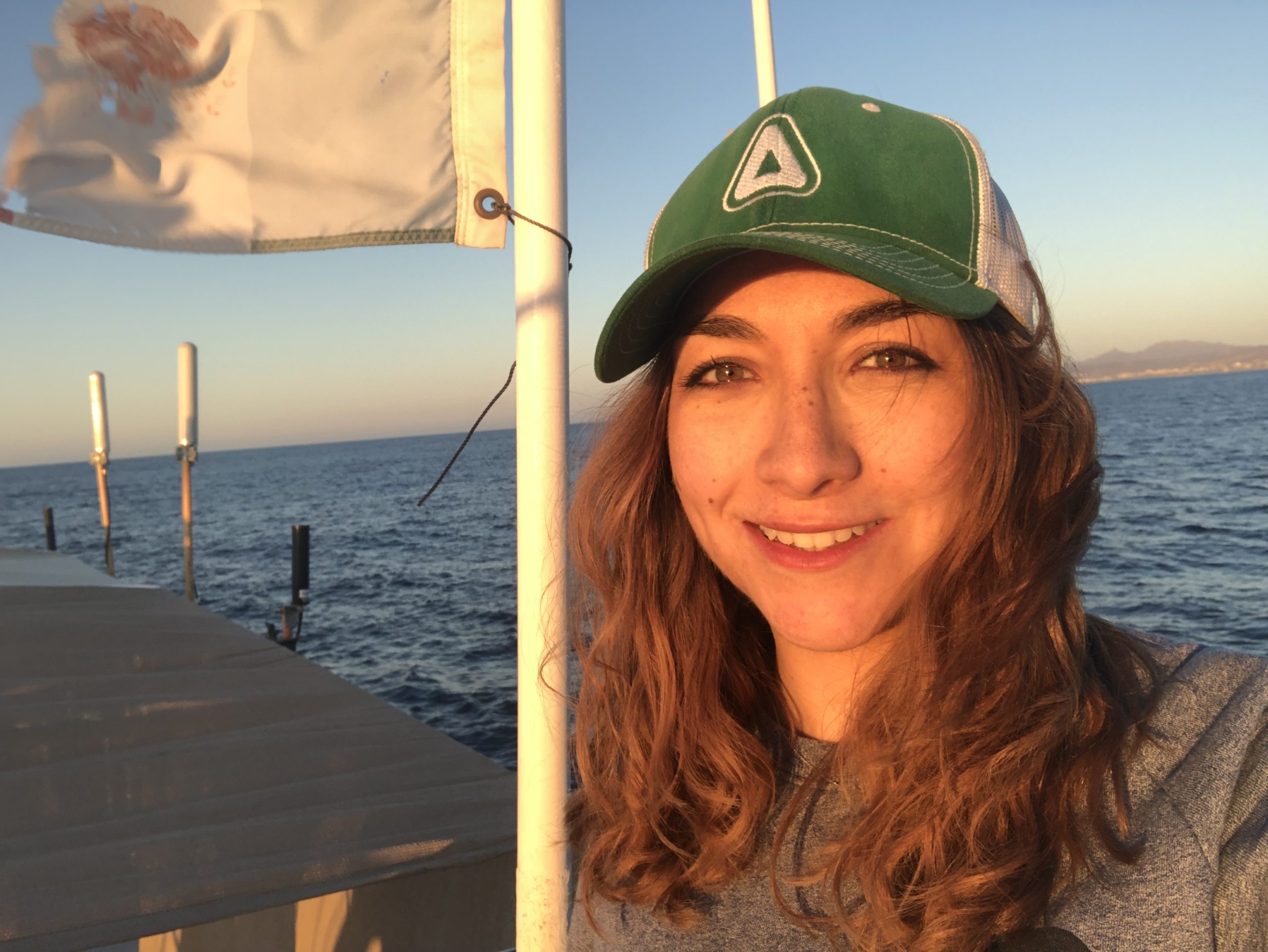Our world-leading marine research underpins a wide range of undergraduate and postgraduate programmes: Research-led teaching | Exeter Marine | University of Exeter. In this #MScGraduateInFocus series we are looking back on some of our MSc graduates who have excelled in marine conservation around the world since studying with us.
Today we meet Nathalie Swain-Diaz, MSc Conservation and Biodiversity graduate (2016) and now a Senior Natural History TV Researcher!
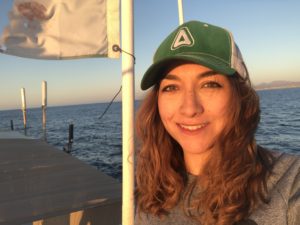
Hi Nathalie! Your job sounds incredibly exciting, why don’t you tell us a bit about your career since studying with us?
Whilst I was completing my Masters, I was offered a job at the BBC in Manchester, working on a new campaign for children which involved designing Science experiments. Whilst there, I did a 2-week placement with the Natural History Unit in Bristol and was offered a job soon after. I’ve never really looked back! Since then I’ve been really lucky to have worked on marine focused programmes such as Blue Planet Live and have most recently been working at an independent production house based in Bristol on an animal behaviour focused series.
To be completely honest, I wasn’t aiming for this career! Natural History TV was a world that seemed completely inaccessible and I thought it was a ridiculous pipe dream to even entertain the idea of it as a viable career, but I am forever thankful that I find myself in an industry that marries my creative and academic interests so perfectly. At the moment there seems to be more demand for (and interest in) natural history programming than ever before, which is hugely exciting and hopefully marks a turning point – I think people are craving a connection to nature that has been lost over the years, and I am really looking forward to seeing how the industry grows and finding more unique stories to tell on screen.
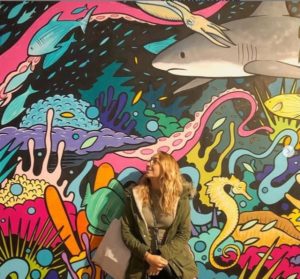
What attracted you to study your MSc at the University of Exeter, Penryn Campus?
The course was the most aligned to my interests and I loved the variety of subjects and scope for independent research on offer. I was hoping to find a taught Masters that would still give me the freedom to have a healthy work-life balance and live in a place I had never been before where I could explore the outdoors in my downtime.
The Masters course had a great reputation and I had met previous graduates who recommended the course greatly. The lecturers are also at the top of their respective fields and I felt it would be a great place to learn more about a field I really wanted to get into.
So, what did you enjoy most about studying your MSc?
I have to say – Cornwall itself! I grew up in the middle of London but I’ve always been overwhelmingly drawn to the ocean, and having it on my doorstep for a whole year was incredible. It’s such a beautiful part of the country and being able to explore it on the weekends was a huge perk to studying at the Penryn Campus. There are so many nature trails in the area and the wildlife is incredible, even in winter!
The Masters was really well organized and the lecturers were really involved and helpful. I always felt comfortable emailing with questions and they were always keen to help – the support was brilliant. The campus labs and resources were also great and meant that research went smoothly.
The facilities and student life were great and the lecturers were all very supportive throughout the course. The campus itself is gorgeous and there are loads of gardens and open spaces dotted around that are lovely to explore in the sunshine
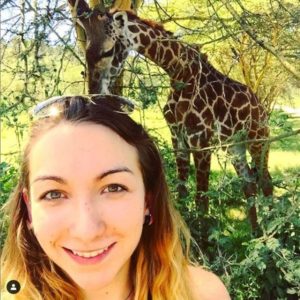
How did the MSc help prepare you for your career?
The Masters course gave me experience in researching a wide range of topics in depth, as well as presenting them in a range of formats. Each module had very different requirements for coursework, not just writing essays, but designing posters, and the variety meant that I could better adapt information to each. I was also part of a team creating a podcast about current research going on at the University and created content for the social media channels. All of these skills have come in useful in the workplace, especially working in a creative industry where I often use different formats to convey information I have researched. It has also given me more confidence to approach scientists at institutions around the world and to interpret data from published papers. Lecturers and guest speakers at the University have also added to my professional network and it has been really useful in finding stories that could work well on screen.
Finding and synthesizing large amounts of information and factchecking is paramount for my job and I definitely learnt how to do this in a more efficient manner during my Masters course. The course was well geared into focusing on current conservation challenges that are becoming more crucial to understand in depth as our natural world changes at an ever-increasing rate, and learning about the range of threats the natural world is facing has inspired me to research these topics in depth for programme proposals in particular.
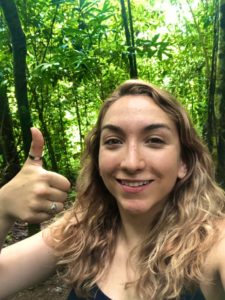
What advice would you give to a current student who wishes to pursue your career?
Don’t sell yourself short! The industry is growing and always looking for new, talented people with a genuine passion for wildlife. I’d watch current wildlife television and have a go at making your own content – it doesn’t have to be videos… it could be a blog or art – anything! Finding a way to showcase your creativity is always great too and shows genuine interest. It’s also useful to keep an eye on careers websites and search for companies offering entry level positions for recent graduates.
Finally, Do you have any advice for anyone thinking of applying to any of our programmes at the University of Exeter?
If your gut is telling you to do it… Do it! My Masters was such a great experience and also loads of fun, you’ll love it!
Thanks Nathalie!
You can follow Nathalie on Twitter @Nat_Nature and Instagram @nat.nature or check out her website, Nature Nat!
If you want to find out more about any of our suite of #ExeterMarine Masters and Undergraduate courses use the links below!
- NEW: MSc in Marine Vertebrate Ecology and Conservation
- MSc in Conservation and Biodiversity
- MSc in Conservation Science and Policy
- MSc in Evolutionary and Behavioural Ecology
- MSc in Sustainable Development
- MSc in Environment and Human Health
- MSc in Renewable Energy Engineering
- BSc Marine Biology
- BSc Zoology
- BSc Environmental Science
- BSc Conservation Biology and Ecology
- BSc Evolutionary Biology
- BSc Animal Behaviour

